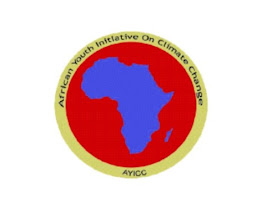Green Economy Perspectives
Before we delve into the nitty gritties of the green economy concept in our
forthcoming posts, it is prudent to examine the different viewpoints of green
economy. The blanket meaning of win-win economic-environmental aspects of life
sheds light on the fundamentals of the concept.
In the industrial
quarters green economy is more understood as resource efficient and
technology-driven undertaking that increases investments and growth while
substantially reducing carbon footprints. Examples of clean mass transport
systems, advance waste management hinged on the 3Rs pattern, controlled
chemicals use and management, careful mining practices and actions that ensure
sustainability of investments; encompass this type of green economy.
In developing countries, green economy is best defined as existing natural resources-based
livelihoods. Pastoralists in Africa for instance count their wealth in terms of
livestock they possess. The indigenous communities in Asia practice sustainable
community hunting and gathering to ensure ample time for replenishing of
natural resources. The bare minimum here is the harmony with which humans exist
in the natural environment.
Regardless of where it lies, the basic tenets of green economy remain consistent on
sustainability. The industrialized world changing their consumption patterns
and general effects of development that undermine the environment while the
developing world continuing to pursue their developmental targets but adhering
to the sustainability principles. These synergies are crucial.
With increasing evidences that
green economy is good for
business, people and the planet, not everyone is interested in its
ventures. This is because of heavily vested interests in short-term gain of the
profit-driven society. Recent studies show that global annual subsidy to the
renewable energy sector is $46billion compared to the outrageous $557billion to
the fossil-fuel sector thus rendering mute arguments that renewable energy
technology is too expensive to compete with the fossil-fuel energy.
Green politics is hence necessary to keep in check the entities directly
involved in policy formulations. This has been the main missing link between
poor nations and the wealthy nations, the strong always having their way at the
expense of the weaker, barely-willing nations.
We know what is wrong, as we
have always known, in the next segment we will start looking at the specifics
and the viable solutions and pathways to green economy with explicit insights
into several aspects of development and society.
Prepared by: Daniel Wasonga

Comments
Post a Comment